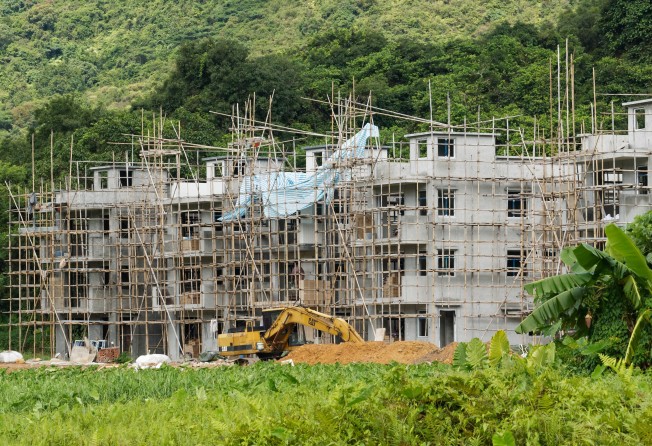It’s time to confront the Heung Yee Kuk on illegal sales
Villagers have been unlawfully trading land rights for decades and a recent study has shown the extent of the abuse – and why the government must act

It’s an open secret that villagers in the New Territories have been trading their land rights illegally for decades. Given the fact that little was done about it by both the colonial and post-1997 governments, the illicit practice has long been suspected to be widespread and blazon. But how common?
According to the Liber Research Community, a social activist group, almost one in four transactions may have been an illegal sale in the past four decades. It’s not an official figure and its methodology has been questioned. But it may be the best guesstimate we have so far under the so-called small-house policy. Even if Liber is off by 50 per cent, it’s still outrageous.
The public already had a glimpse of the tip of the iceberg in late 2015 with the jailing of a developer and 11 other villagers for up to three years for illegally selling their land rights. The heavy sentences outraged villagers and their representative body, the Heung Yee Kuk, because the illegality was so common it had long been assumed to be safe and tolerated.
Unsurprisingly, the scam was exposed by the Independent Commission Against Corruption, not the government.
Liber combed through the records of 42,131 small houses, which took up 224 hectares of land in 642 indigenous villages, and identified 9,878 sales as dubious. Yuen Long is believed to be the worst area, followed by Tai Po and the Northern District.
The Lands Department has questioned the research group’s methods. Well, Liber has only limited resources. Lands officials could easily determine the scale of this black market by checking the same records. But, of course, it won’t because it is afraid to open this mother of all cans of worms.
This is the same government that has consistently complained about the difficulty of finding new land to meet housing demands and urged people to make sacrifices for the common good.
But a crisis could be an opportunity. Here’s an idea. Identify all the illegal sales and confront the powerful kuk with the scale of the abuse. This is reason enough to phase out the small-house policy. As an incentive, offer to buy back those land “ding” rights, especially on land deemed available for housing developments.
Remember, the abuse of ding rights is not a victimless crime. It has taken up large swathes of land, brought harm to the countryside and undermined urban planning.